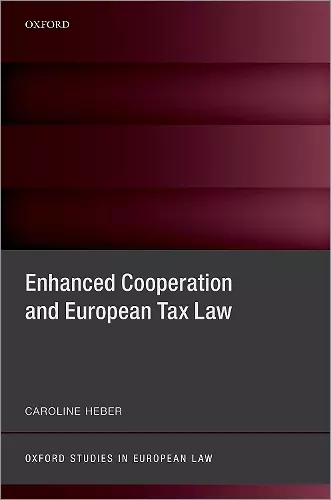Enhanced Cooperation and European Tax Law
Format:Hardback
Publisher:Oxford University Press
Published:17th Jun '21
Should be back in stock very soon

The enhanced cooperation mechanism allows at least nine Member States to introduce secondary EU law which is only binding among these Member States. From an internal market perspective, enhanced cooperation laws are unique as they lie somewhere between unilateral Member State laws and uniform European Union law. The law creates harmonisation and coordination between the participating Member States, but may introduce trade obstacles in relation to non-participating Member States. This book reveals that the enhanced cooperation mechanism allows Member States to protect their harmonised values and coordination endeavours against market efficiency. Values which may not be able to justify single Member State's trade obstacles may outweigh pure internal market needs if an entire group of Member States finds these value worthy of protection. However, protection of the harmonised values can never go as far as shielding participating Member States from the negative effects of enhanced cooperation laws. The hybrid nature of enhanced cooperation laws - their nexus between the law of a single Member State and secondary EU law - also demands that these laws comply with state aid law. This book shows how the European state aid law provisions should be applied to enhanced cooperation laws. Furthermore, the book also develops a sophisticated approach to the limits non-participating Member States face in ensuring that their actions do not impede the implementation of enhanced cooperation between the participating Member States.
this is an excellent book which makes a real contribution to an area not much investigated, especially in the context of taxation. It is highly recommended for EU tax lawyers, but also researchers in EU law in general. * Christiana H. J. I. Panayi, British Tax Review *
ISBN: 9780192898272
Dimensions: 243mm x 166mm x 34mm
Weight: 964g
544 pages